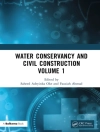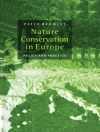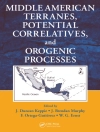This book collects wide-ranging contributions such as case studies, reviews, reports on technological developments, outputs of research/studies, and examples of successful projects, presenting current knowledge and raising awareness to help the agriculture and forestry sectors find solutions for mitigating climate variability and adapting to change. It brings the topic of ecosystem services closer to education and learning, as targeted by the Framework Convention on Climate Change and the Paris Agreement, the 2030 Agenda for Sustainable Development and the EU Biodiversity Strategy to 2020. Climate change and its impacts on agriculture and agroforestry have been observed across the world during the last 50 years. Increasing temperatures, droughts, biotic stresses and the impacts of extreme events have continuously decreased agroforestry systems’ resilience to the effects of climate change. As such, there is a need to adapt farming and agroforestry systems so as to make them better ableto handle ever-changing climate conditions, and to preserve habitats and ecosystems services.
Mục lục
Terraced Agro-systems in west Anti-Atlas (Morocco): incidence of climate change and prospects for sustainable development.- Increasing pulse consumption to improve human health and food security and to mitigate climate change: a case study on the consumption of pulses in a food service setting.- Ecosystem services and incentive mechanisms for environmental preservation in Brazil.- Are we missing the big picture? Unlocking the social-ecological resilience of High Nature Value farmlands to future climate change.- Profitability of Cassava Based Farms Adopting Climate Smart Agriculture (CSA) Practices in Delta State, Nigeria.- Climate-smart agricultural practices (CSA) adoption by crop farmers in semi-arid regions of west and east Africa: evidence from Nigeria and ethiopia.- Challenges, futures and possibilities on land use of rural areas of Cela municipality: Risks, climate change impacts, adaptation and links to sustainability.- Future climate change impacts on Malta’s agriculture basedon multi-model results from WCRP’s CMIP5.- The urgent need for enhancing forest ecosystem resilience under the anticipated climate portfolio over Kerala under RCP 4.5 and its possible implications on forests.- Mediterranean marginal lands in face of climate change: Biodiversity and ecosystem services.- Green Belt of Khartoum.- Multifunctional urban agriculture and agroforestry for sustainable land use planning in the context of climate change in Serbia.- Alien plant species: environmental risks in agricultural and agro-forest landscapes under climate change.- Remote sensing of droughts impacts on maize prices using SPOT-VGT derived vegetation index.- Anthropic action effects caused by soybean farmers in a watershed of Tocantins – Brazil and its connections with climate change.- Enhancing food security and climate change resilience in the degraded land areas through resilient crops and agroforestry.- Community participation in climate change mitigation research in the arid and semi- arid areas of Sudan.- Using of Optimization Strategy for Reducing Water Scarcity in the Face of Climate Change.- Climate Change Impact on Agriculture and Irrigation Network.- Implication of climate change and food security status on rural farmers in Kura Kano state North- western Nigeria.- Decentralised, off-grid solar pump irrigation systems in developing countries – are they pro-poor, pro-environment and pro-women?.- Livestock Technologies and Grazing Land Management Options for Climate Change Adaption and Mitigation to Contribute for food security in Ethiopia.
Giới thiệu về tác giả
Paula Cristina Castro is currently an Invited Auxiliary Professor at the Department of Life Sciences of the University of Coimbra. She began her teaching activity in 1997, having taught several courses in the fields of Biology, Ecology, Environmental Management, Soil Ecology and Pollution, Environmental Impact Assessment, Integrated Management Systems, and Environmental Education. She is a Senior Researcher at the Centre for Functional Ecology, University of Coimbra and her main research interests include climate-resilient ecosystem’s services and sustainability (urban, agriculture, agroforestry), environmental education and the application of GIS as a tool for analysis and prediction of future scenarios and to support decision making in biodiversity, ecology and ecosystem management.
Anabela Marisa Azul is at Center of Neuroscience and Cell Biology, University of Coimbra. Her investigation has being centred on understanding the mutual interactions between plant and fungi and their functional role in the sustainability in Mediterranean forests, fully engaging in participatory research. She is currently supporting the implementation of Translational Research that link health and life/environmental sciences, as well as actively promoting new research-education strategies that bring together the scientific community and the different social/ economical players. Her research interests include education research, science-art collaborations, and research & innovation that combine health and sustainability chains.
Walter Leal Filho (BSc, Ph D, DSc, DPhil, DEd, DL, DLitt) is a Senior Professor and Head of the Research and Transfer Centre ‘Applications of Life Sciences’ at Hamburg University of Applied Sciences in Germany, and Chair of Environment and Technology at Manchester Metropolitan University, UK. He is the initiator of the Word Sustainable Development Symposia (WSSD-U)series, and chairs the Inter-University Sustainable Development Research Programme. Professor Leal Filho has written, co-written, edited or co-edited more than 300 publications, including books, book chapters and papers in refereed journals.
Ulisses M Azeiteiro is a Senior Professor and Coordinator of the Climate Change and Biodiversity Assets Unit from the Biology Department and Integrated Member/Senior Researcher of the Centre for Environmental and Marine Studies (CESAM) at University of Aveiro in Portugal.
His main interests are the impacts of climate change in the marine environment (biology and ecology of global change) and adaptation to climate change in the context of sustainable development (social and environmental sustainability and climate change). Professor Azeiteiro has written, co-written, edited or co-edited more than 200 publications, including books (> 20), book chapters (> 50), special issues of scientific journals and papers in refereed journals ( 50 peer reviewed).












